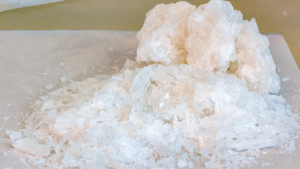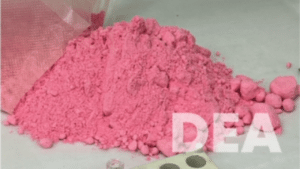Sudafed is a brand name for pseudoephedrine, a decongestant drug. While Sudafed used to be sold without a prescription, it has since been restricted and regulated because it can be used to manufacture methamphetamine. Meth addiction is a very serious concern and if you or a loved one is struggling with meth addiction, it is best to start looking into substance abuse treatment programs in your area.
The Bluffs is located in Sherrodsville and we provide a wide variety of treatments and programs to help our patients heal from many different kinds of substance use disorders. Our experienced team works with patients to provide the most effective evidence-based therapies that can give holistic healing and genuine recovery. If you need support and guidance on your recovery journey, reach out to us at 850.374.5331 today.
What Is Sudafed?
Sudafed, or pseudoephedrine, is a nasal decongestant drug that can produce a stimulating and energetic high. When used at a proper dosage, it is not an addictive substance. However, there are a few side effects that are related to typical Sudafed use:
- Anxiety or nervousness
- Dizziness
- Excitability
- Insomnia
- Urinary retention
The primary reason that Sudafed access has been restricted is due to the fact that it can be converted into an ingredient for making methamphetamine. Due to this, you can only purchase Sudafed with a prescription, and only enough for a month at most.
Apart from the use of Sudafed as an ingredient for meth, taking more than the suggested dose can result in a euphoric high. This is because Sudafed targets the reward system in the brain and overloads it with dopamine. This effect causes Sudafed to have a high potential for dependency.
Can You Get Addicted to Sudafed?
Though one assumes that a nasal decongestant couldn’t possibly be addictive, it is possible to become addicted to Sudafed. This drug is a stimulant that can increase alertness and energy. As a result, some people believe that it can enhance performance in work, school, or sports. A very large dose of Sudafed can result in a sudden rush of energy and hyperactivity, a high that is similar to other stimulants like cocaine or meth.
While being addicted to Sudafed may not be as severe or dangerous as being addicted to methamphetamine, the long-term use of Sudafed can still result in physical and psychological dependence. Someone who has an addiction to Sudafed may exhibit the following symptoms:
- Red eyes and dilated pupils
- Nausea, vomiting, decreased appetite, and weight loss
- Restlessness and sleeplessness
- Weakness in the muscles
- Abnormal heartbeat and tightness in the chest area
- Cognitive problems and confusion
- Increased anxiety, irritability, frequent mood swings, and paranoia
It is not expected for someone to experience withdrawal symptoms when they are detoxing from Sudafed. However, a few people have reported minor unpleasant reactions like depression, vivid nightmares, or drug cravings. It’s this last symptom that is so concerning. Why? Because it may lead to relapse and continued substance use.
Another area of concern is that Sudafed may act as a gateway drug. If that happens, it may lead people to experiment with more dangerous stimulants. The legal supply of Sudafed may be difficult to obtain. As a result, they might become tempted to illegally obtain meth, which gives a similar experience.
Begin a Substance Abuse Treatment Program at The Bluffs
At The Bluffs, we believe in a therapeutic approach in order to get to the root cause of a patient’s addiction. Once a patient is physically healed through medically supervised detox, the next step is mental and emotional healing through individual and group therapy. Through this approach, we can provide lifelong sobriety and health. If you are ready to take the first step toward a healthier future, contact us at 850.374.5331 to learn more about what we can offer.








